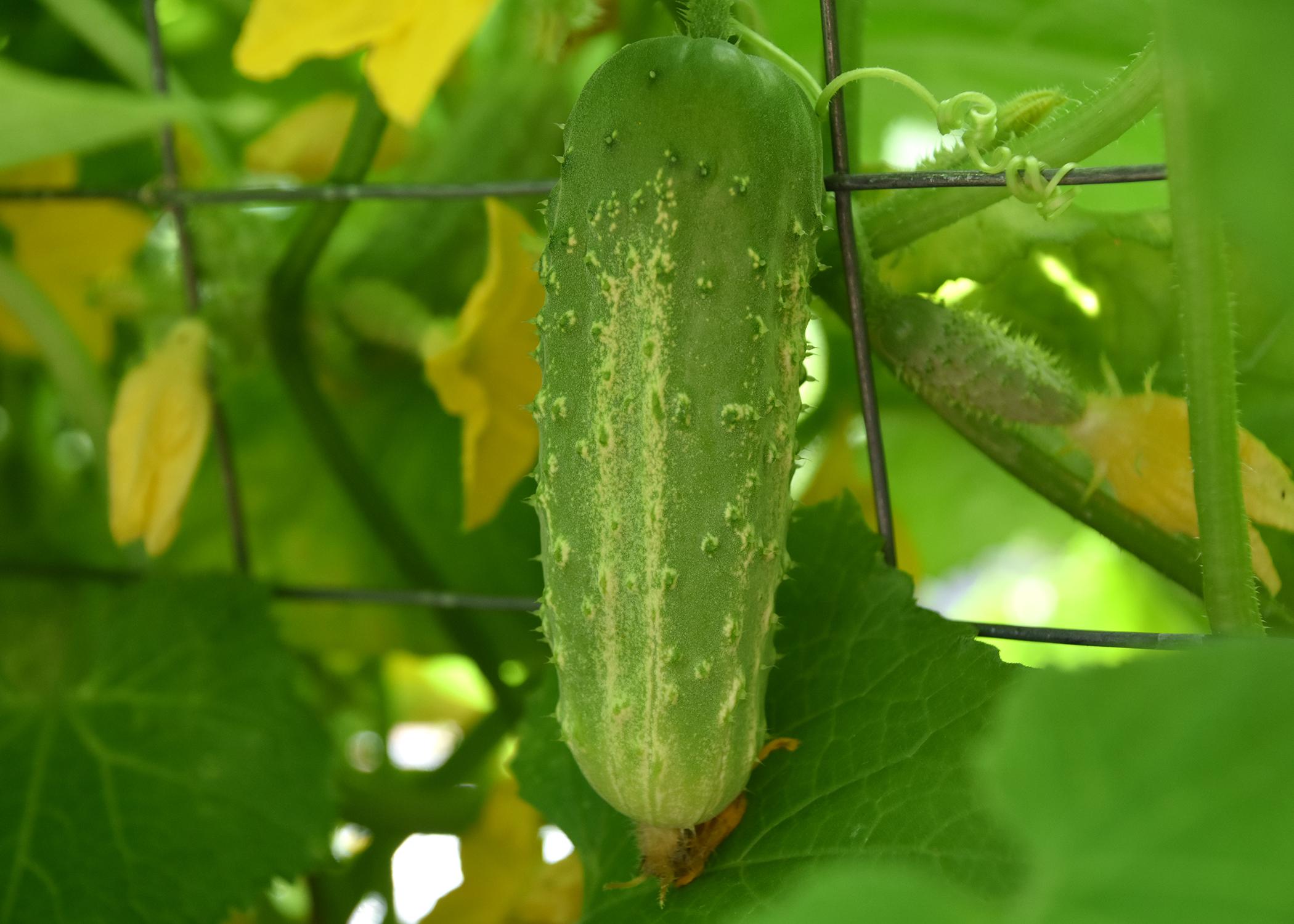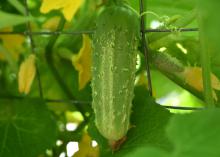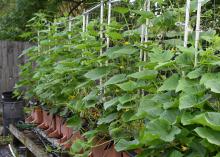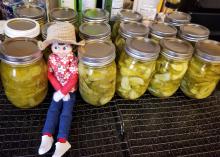Information Possibly Outdated
The information presented on this page was originally released on April 5, 2021. It may not be outdated, but please search our site for more current information. If you plan to quote or reference this information in a publication, please check with the Extension specialist or author before proceeding.
Use trellises to grow pickles to eat, share
If you read this Southern Gardening column frequently, you realize that I grow much more than pretty flowers in my home garden. Besides ornamental plants, I love to grow vegetables that my wife and I can enjoy for dinner.
My neighbors also love my vegetable garden because I like to share the bounty of what I grow. It’s amazing how much fresh food can be grown in a small garden space. That is why I call my home garden the Heritage Cottage Urban Nano Farm.
Among my favorite vegetables are pickles. I know, I know. Pickles are made from cucumbers, but my wife and I don’t like cucumbers. We do like pickles, and so it is pickles that I grow.
The strategy I use growing pickles in my subirrigated containers is to train the vines to grow up on a trellis made from hardware cloth. Sometimes, I’ve helped the vine hang on using the same greenhouse clips I use for my tomato crops.
Growing my vines on a trellis makes working with the plant and picking the pickles easy on my back.
Last year, I may have gone overboard with pickles because I tended 36 total plants of a few different selections. I grew and liked Burpee Pickler, Ferry-Morse Garden Bush Pickle and Burpee Picklebush. All of these produced pickles that were 1.5 to 2 inches wide and 6 inches long. I picked the seed packets up at the garden center.
Since pickles are cucurbits, they are classified as monoecious plants. This means they have separate male and female flowers on the same plant and rely on pollinators to perform pollination. I’m always fascinated watching the various bumblebees and honeybees coexisting as they move from flower to flower.
An interesting pickle that was selected as a Mississippi Medallion winner in 2017 is called Patio Snacker. What’s unique about this selection is that it’s parthenocarpic, a big word meaning the fruit are produced without needing pollination.
Patio Snacker will produce an abundant harvest of cucumbers within only 2 to 3 feet of growing space! Patio Snacker produces a vine that’s up to 5 feet long and works well for trellising.
Most of the cucumbers I picked ended up in jars as dill pickles. We can everything at my house, because you never know when the zombie apocalypse is going to happen.
People ask me sometimes what my favorite pickle recipe is. I’ve tried mixing the spices myself, but there are some outstanding ready-mixed products on the market.
But I have a word of caution if you’re unfamiliar with canning and plan to pickle your own cucumbers. Always follow established safe practices. Your local Extension office can provide information, and some even offer canning classes.
If you’d like to get a look at how I grow my pickles, watch the Southern Gardening TV segment, http://extension.msstate.edu/southern-gardening/video/2020/growing-pickles.





